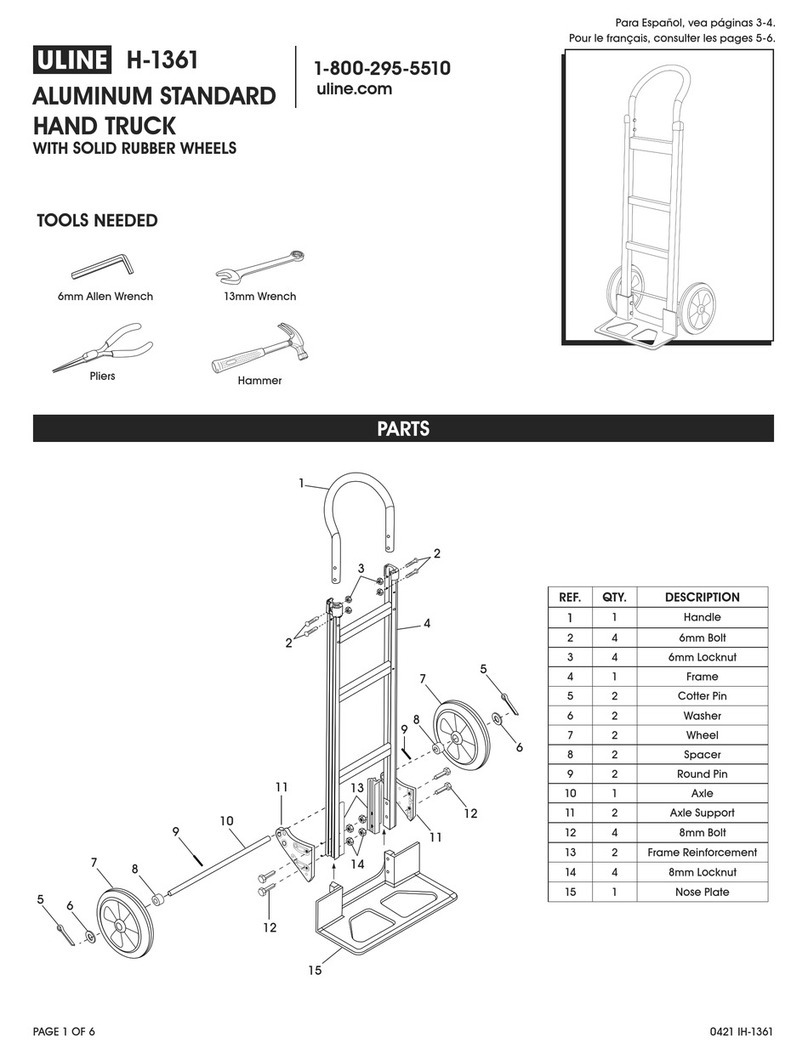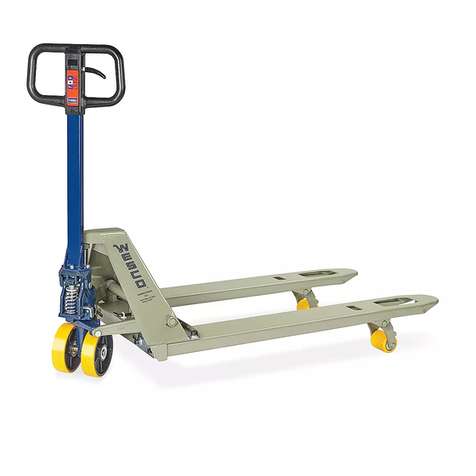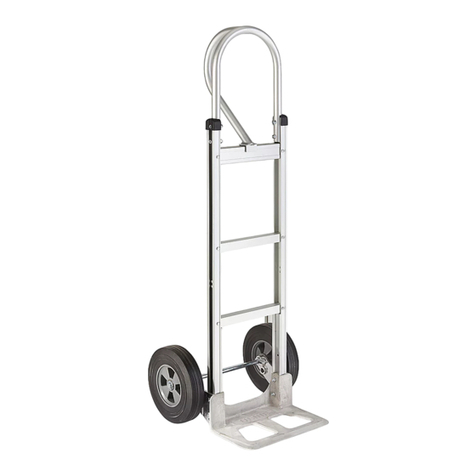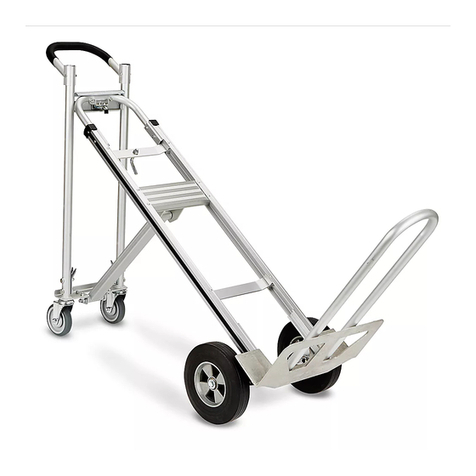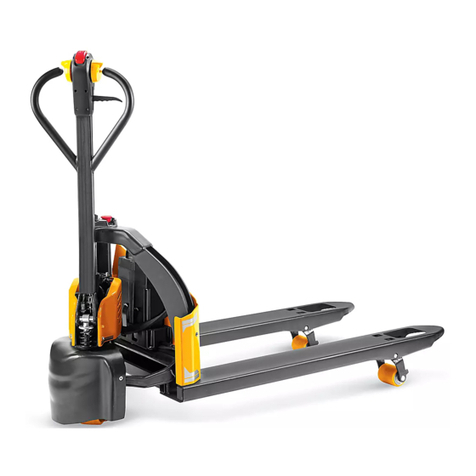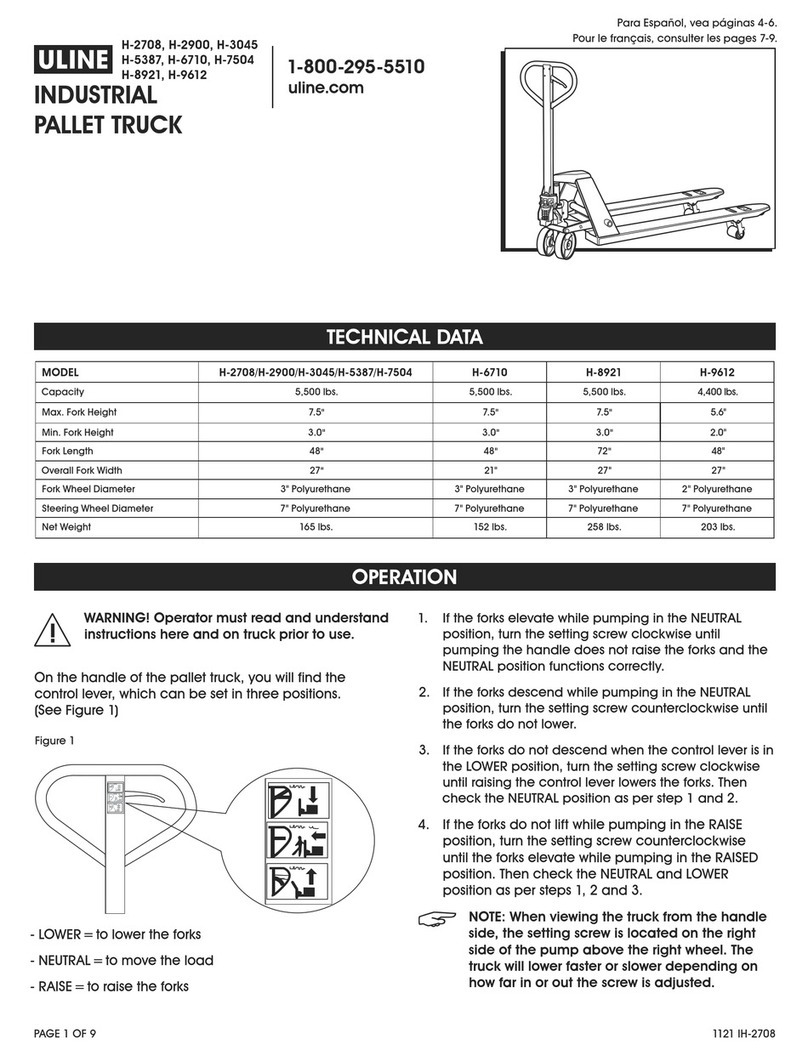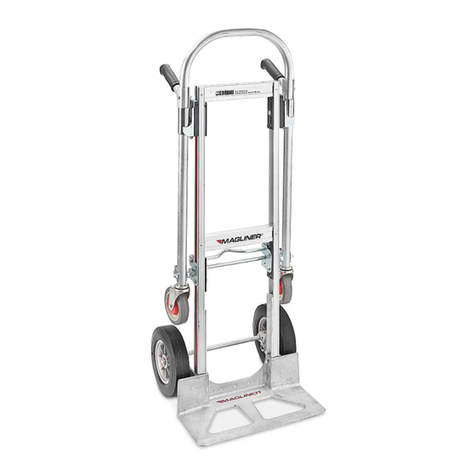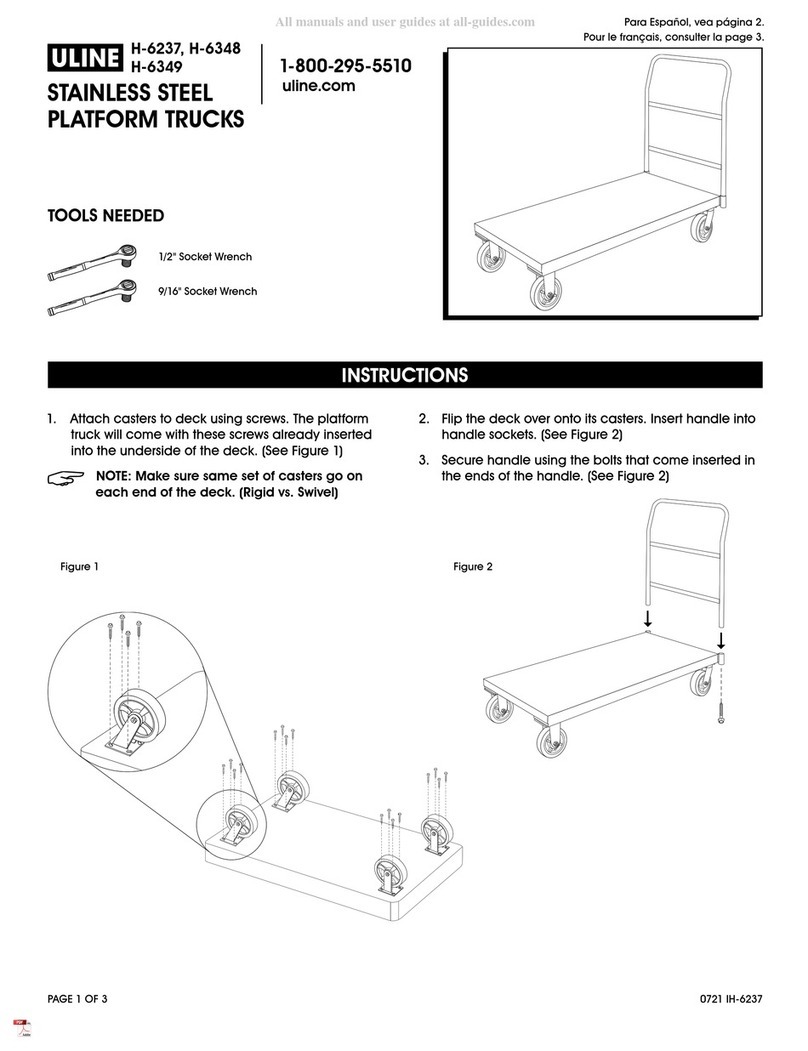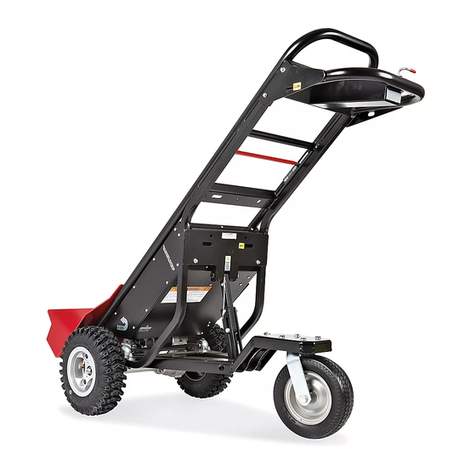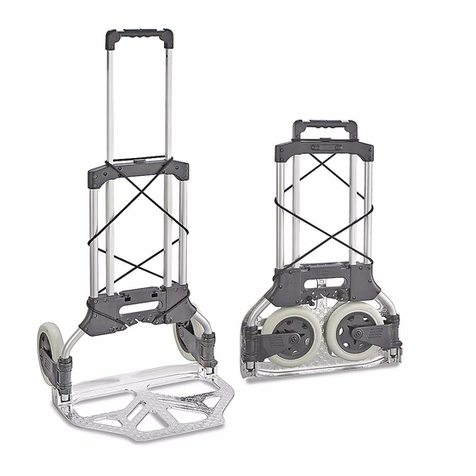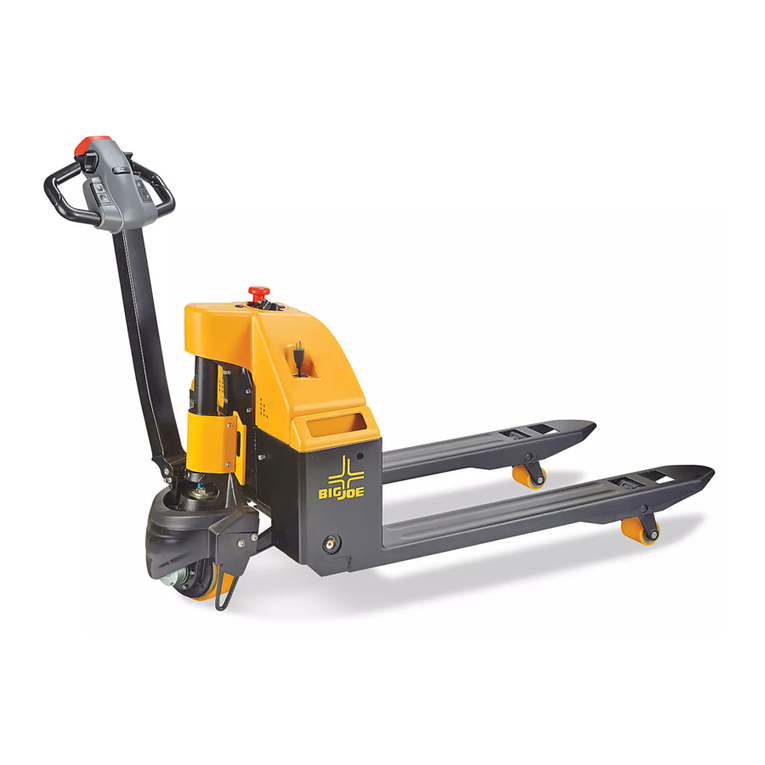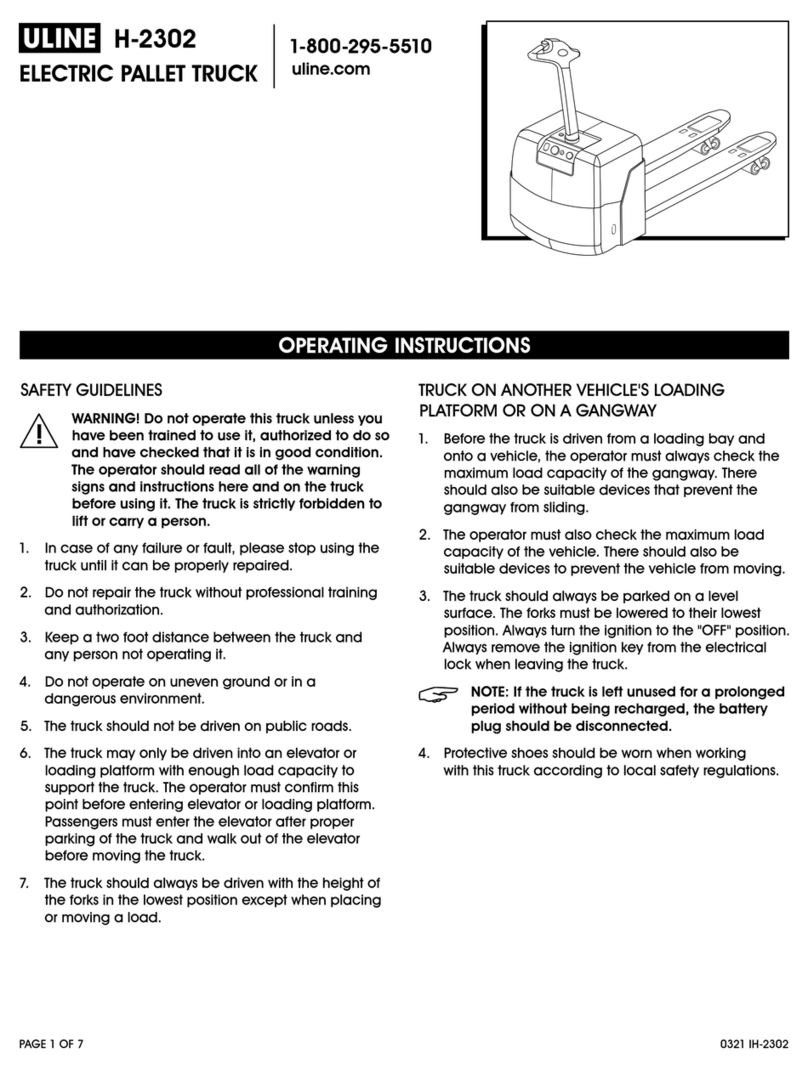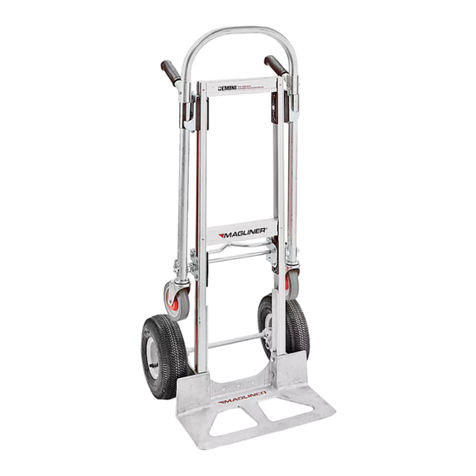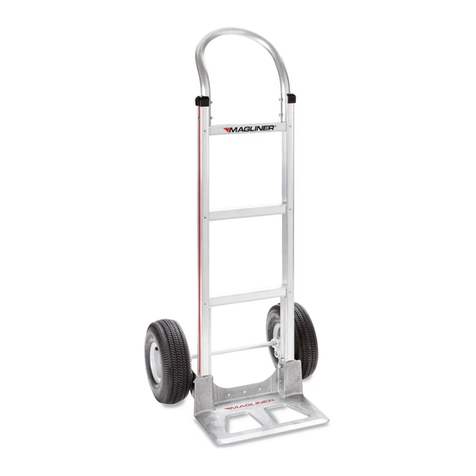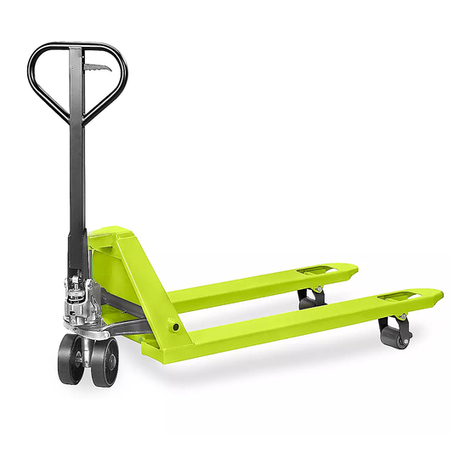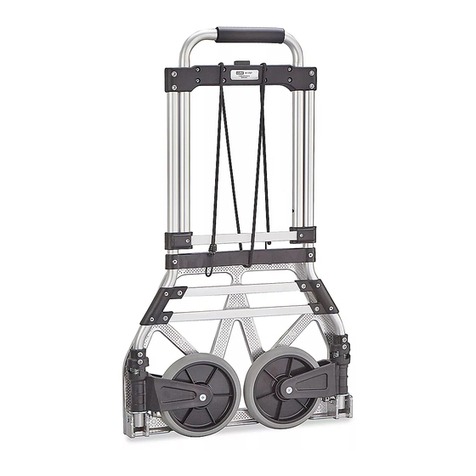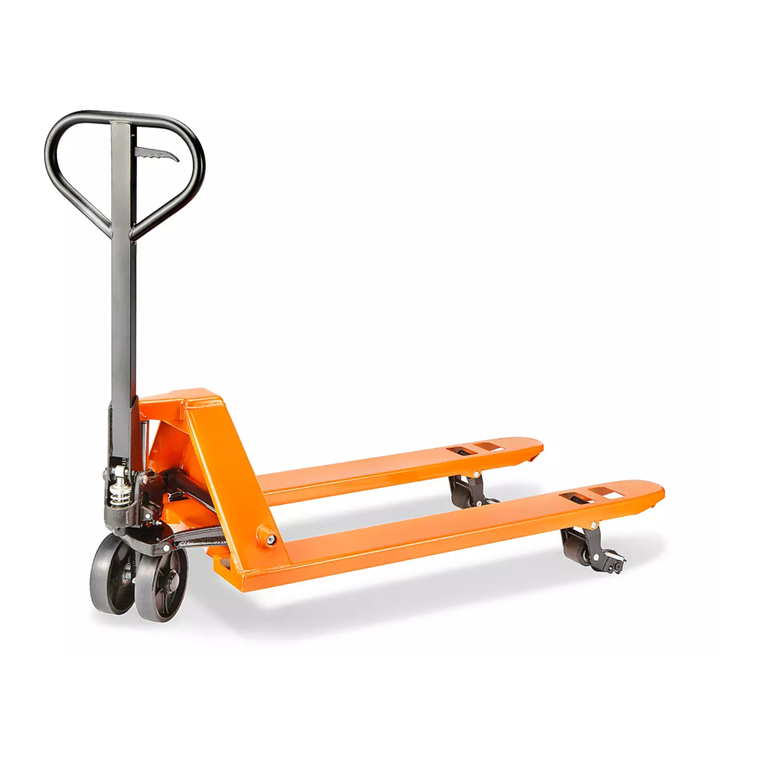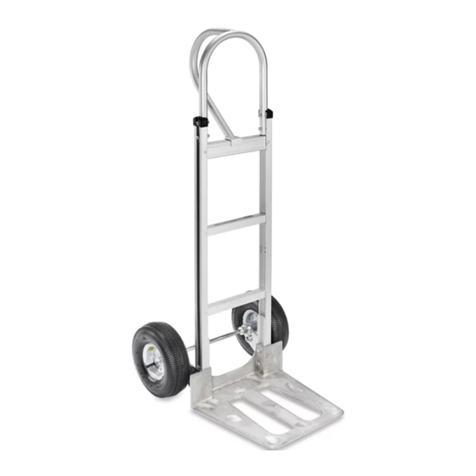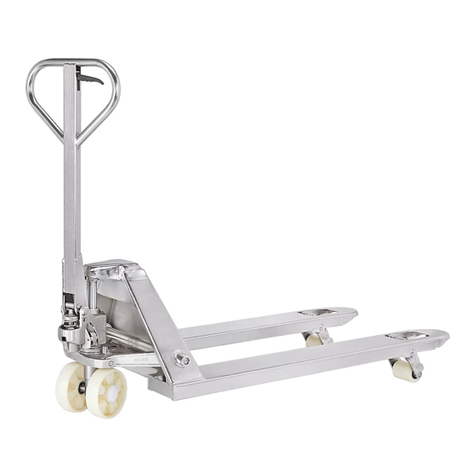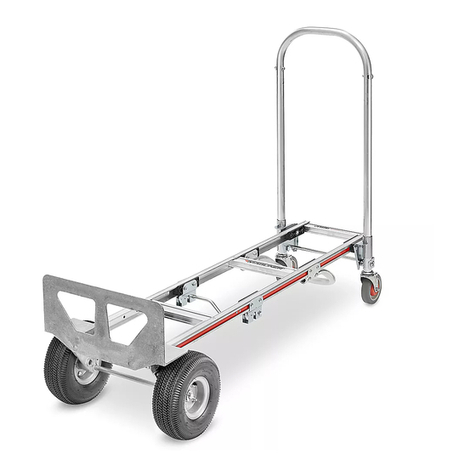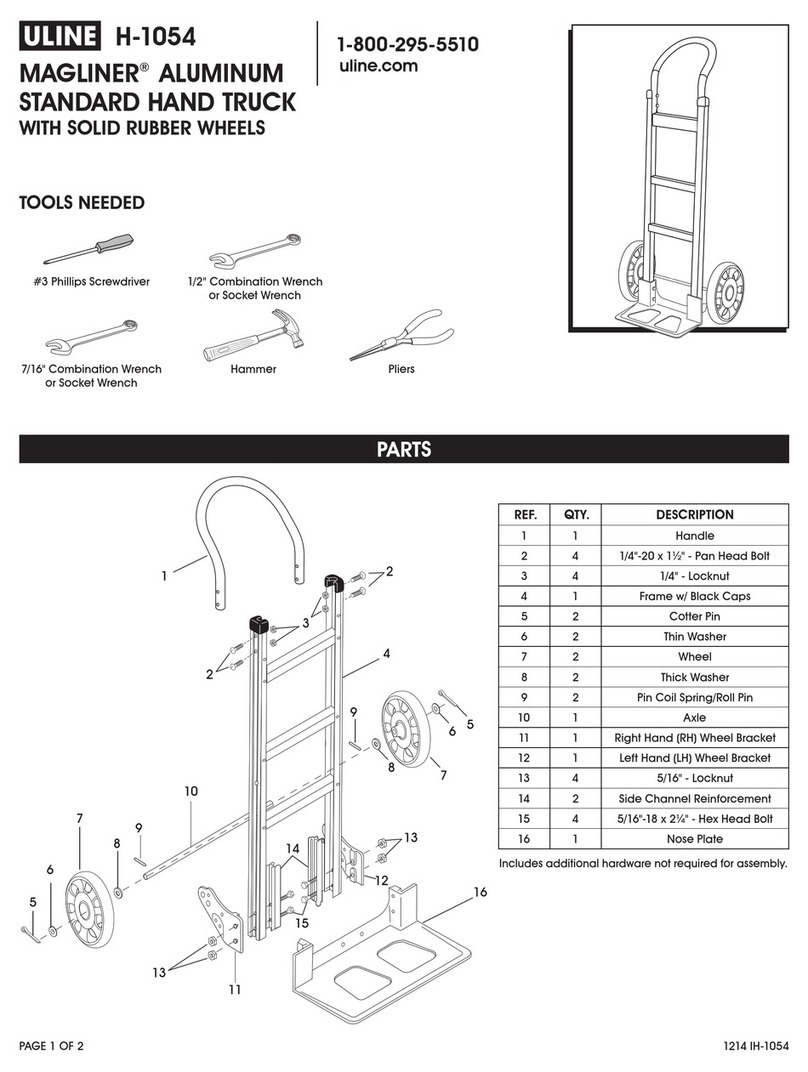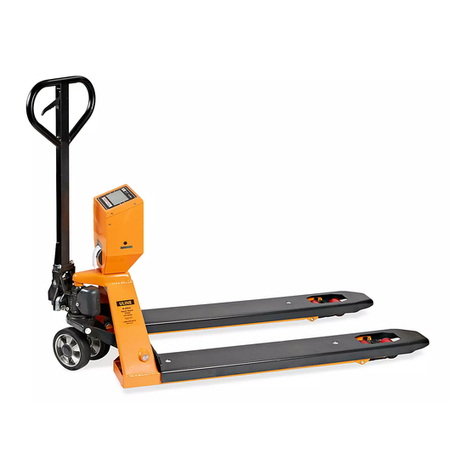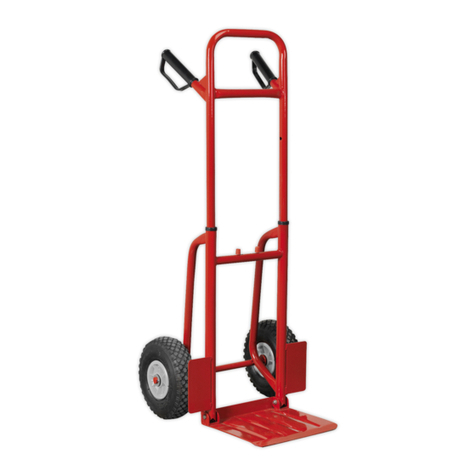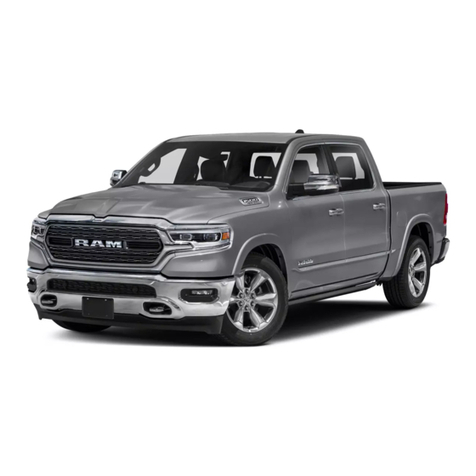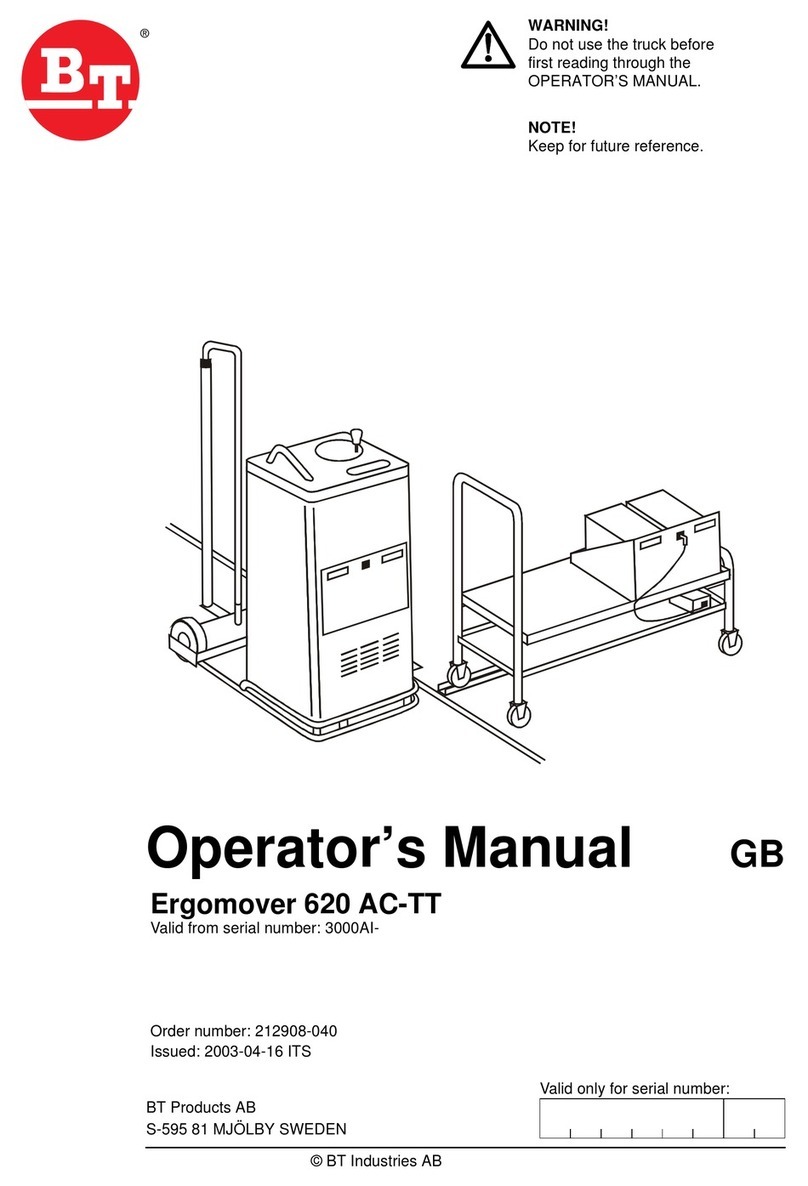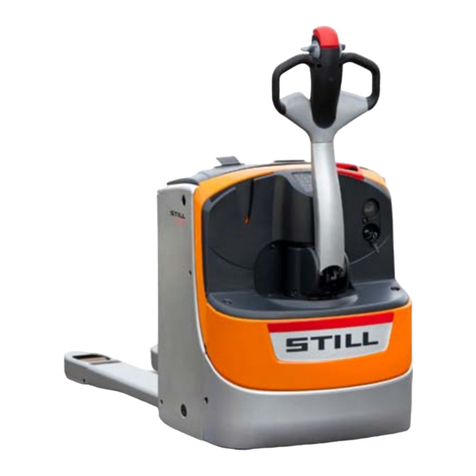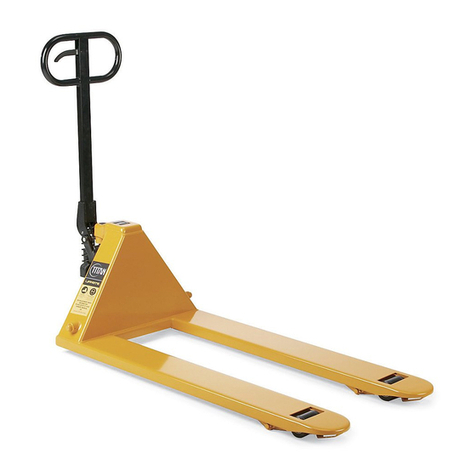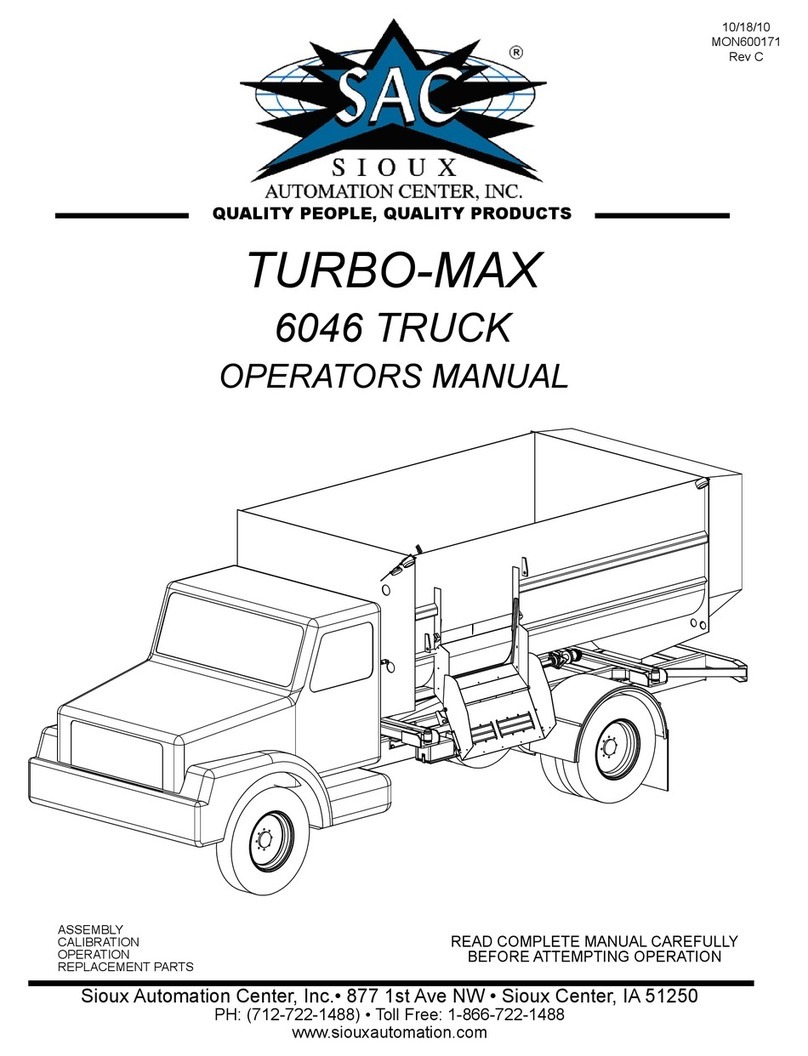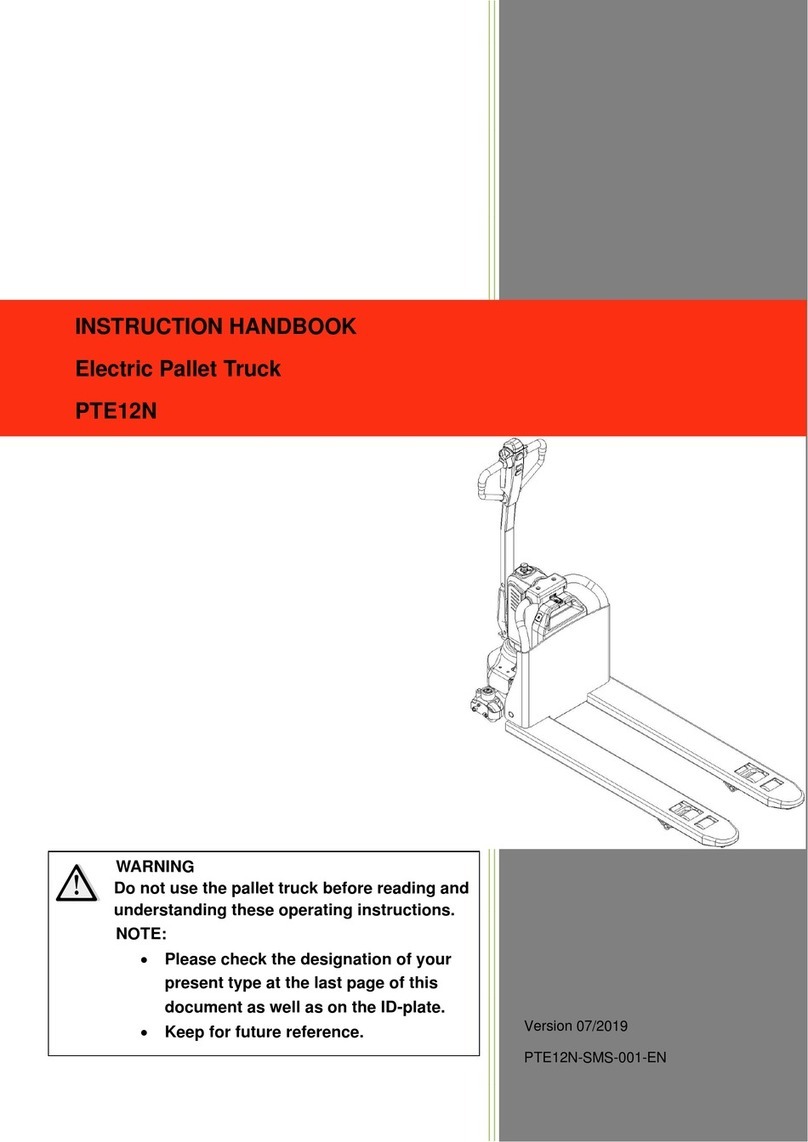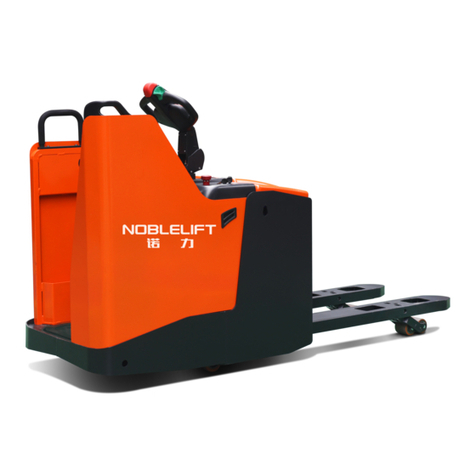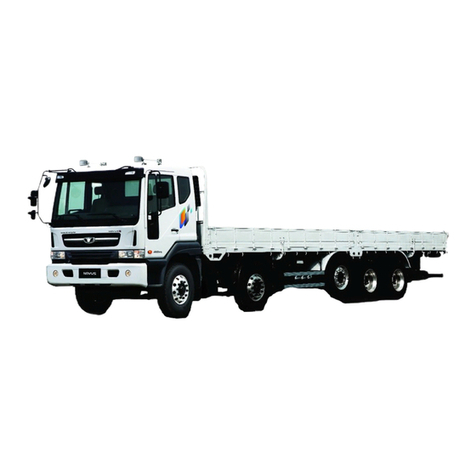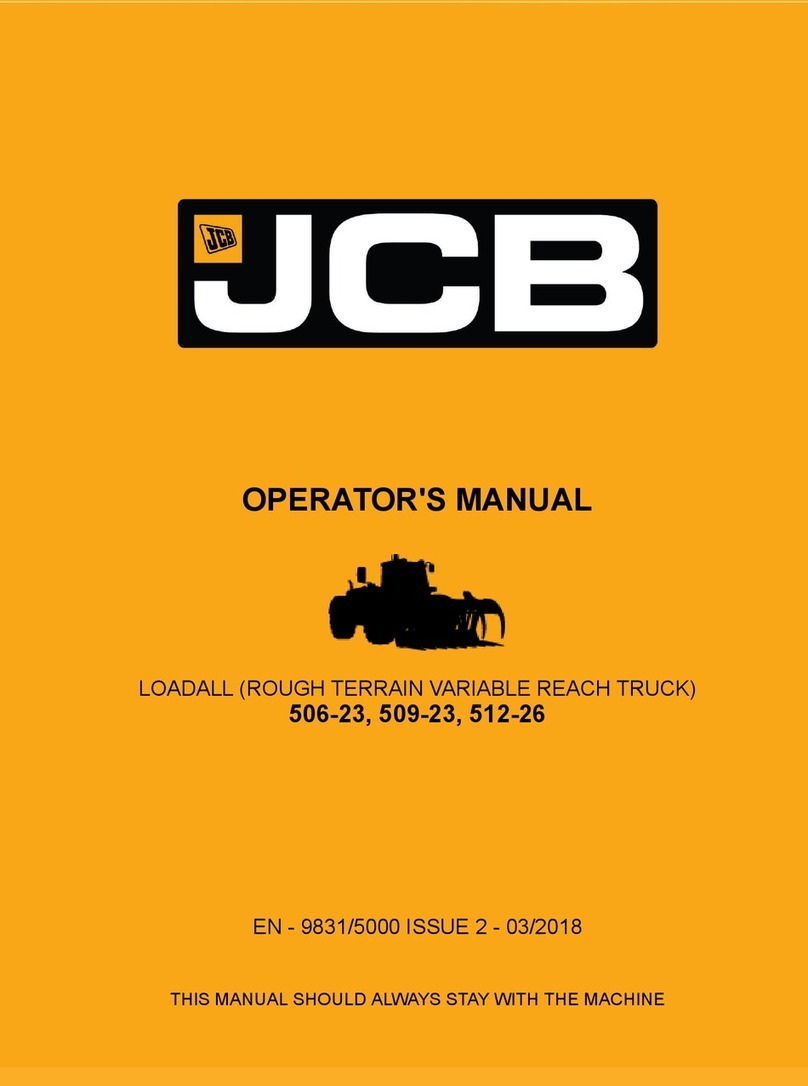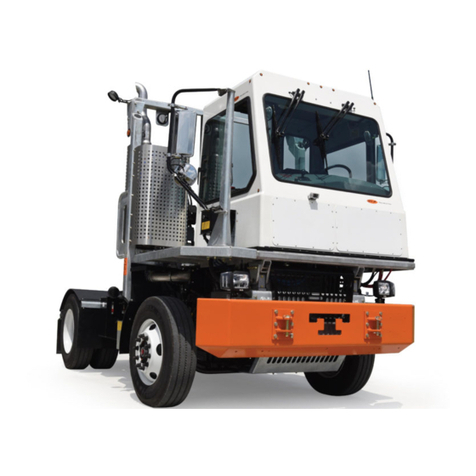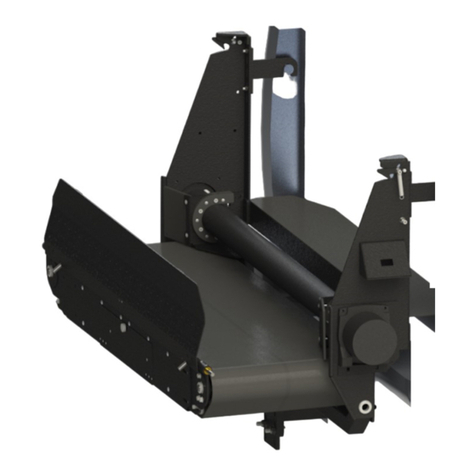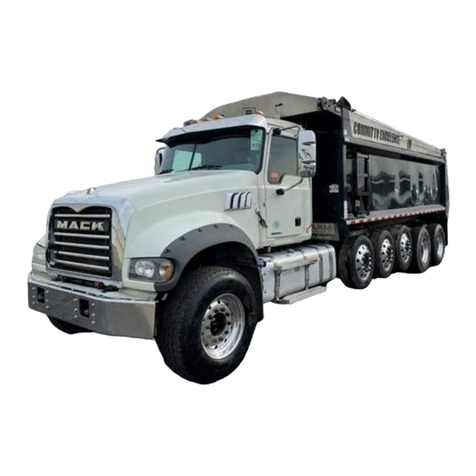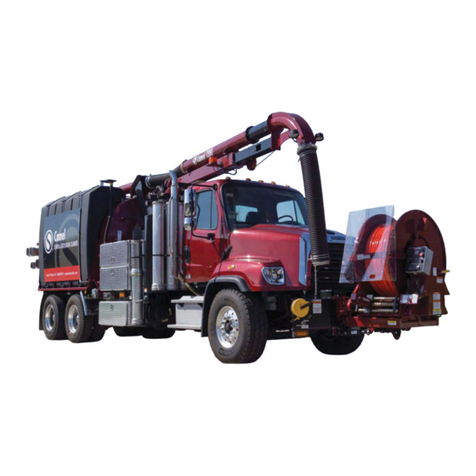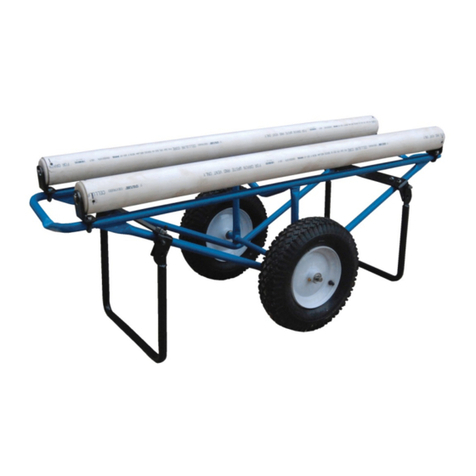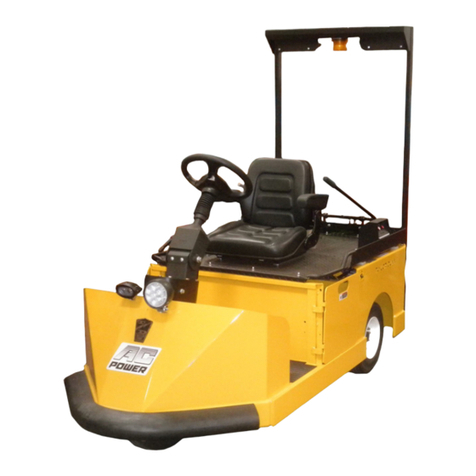
0312 IH-3405PAGE 5 OF 7
MAINTENANCE CONTINUED
PREPARATION OF TRUCK TO BE
REPAIRED OR MAINTAINED
Prepare all necessary safety measures to avoid a
possible accident during the course of repair and
maintenance by taking the following precautions:
1. Park the truck safely.
2. Press emergency shut-off switch and disconnect
the battery.
INSPECTION OF HYDRAULIC OIL CAPACITY
1. Remove the ten bolts (1). (See Figure 7)
2. Remove covers (2). (See Figure 7)
3. Check the capacity of hydraulic oil in oil tank.
NOTE: During inspection of hydraulic oil
capacity, forks and carriage must be lowered
to the minimum height.
INSPECTION OF ELECTRIC FUSE
1. Remove the ten bolts (1). (See Figure 7)
2. Remove covers (2). (See Figure 7)
3. Consult the chart to check the current rating of all
fuses, and replace if necessary.
USE OF TRUCK AFTER MAINTENANCE
Finish the following operations before using the truck:
1. Clean the truck.
2. Check the brakes.
3. Check the emergency shut-off switch.
4. Check the horn.
MAINTENANCE OF THE TRUCK
OPERATION AND ENVIRONMENTAL SAFETY
1. The instructions in the table in "Maintenance List"
should be performed based on the time interval
specified.
2. To ensure the safety and reliability of truck operation,
only spare parts from manufacturer should be used.
3. Any parts replaced, including oils, must be disposed
of according to related environmental protection
regulations.
SAFETY RULES FOR PALLET TRUCK MAINTENANCE
1. MAINTENANCE STAFF – Repair and maintenance
should be performed only by qualified professionals.
2. CLEANING OPERATION – Flammable fluid is strictly
forbidden in the cleaning of the truck. Before
cleaning starts, safety measures must be taken
to avoid sparking caused by a short circuit. Any
cleaning should be performed after disconnecting
the battery. All electric elements and electronic
assemblies can only be cleaned by compressed air
or by an anti-static brush.
3. OPERATION OF ELECTRICAL SYSTEM – Maintenance
of electrical system of the truck should be
performed by trained professionals only. Before
any maintenance of electrical system, protection
measures to avoid electric shock should be taken by
disconnecting the battery from the truck.
4. WHEELS – The condition of the wheels will greatly
affect stability and driving performance. Wheels
should be replaced in pairs, e.g., both left and right.
5. LIFTING CHAINS – Without lubrication, the lifting
chains will wear out prematurely. The time interval
in the maintenance list is applicable for normal
operation. In case of poor operating conditions
(dust, temperature), it is necessary to increase
lubrication accordingly.
6. HYDRAULIC OIL PIPE – The oil pipe should be
replaced every six years.
NOTE: The maintenance cycle stated in
maintenance list refers to normal conditions
with single shift operation. Under dusty
conditions, extreme temperatures or under
multiple operating shifts, the maintenance
cycle should be shortened accordingly.
7. Please perform maintenance according to the
following table:
CODE MAINTENANCE SCHEDULE
W1 Every 50 working hours, at least once per week
M3 Every 500 working hours, at least once per 3 months
M6 Every 1,000 working hours, at least once per 6 months
M12 Every 2,000 working hours, at least once per 12 months
CODE PROTECTION PURPOSE CURRENT
RATING
FU1 Main Circuit Fuse 10A
FU01 Traveling Control Fuse 200A
